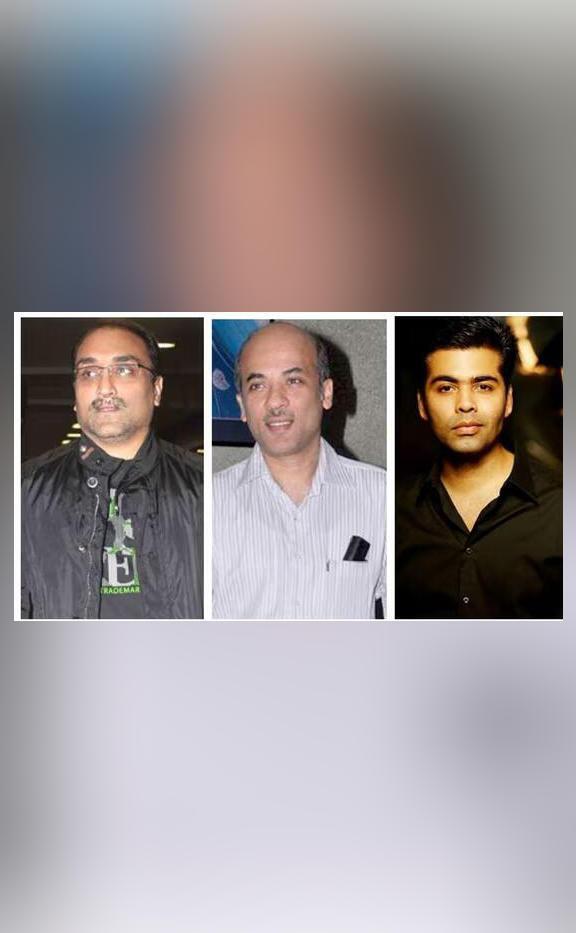
Karan, Aditya & I Born with Golden Spoons, Sell Fairytale: Sooraj
The Indian film industry has been a bastion of entertainment and escapism for decades, providing audiences with a world of fantasy and make-believe. But, have you ever stopped to think about the people behind the camera, the ones who create these fantastical worlds? Filmmaker Sooraj Barjatya, known for his family dramas and romantic comedies, recently shared some candid thoughts about the industry and his contemporaries, sparking a heated debate on social media.
In an interview with a leading publication, Sooraj Barjatya made some bold claims about his peers, saying that he, Aditya Chopra, and Karan Johar were “born with golden spoons” and have not experienced the hardships of life. He further stated that they have always traveled in cars, and their films have always showcased a world that is a fairytale. The 90s, he added, were an era when the audience wanted to see fairytales.
Sooraj’s comments have raised eyebrows among fans and industry insiders alike, with many questioning the validity of his claims. Are these three filmmakers truly privileged, or is Sooraj just trying to make a point about the industry’s changing landscape? Let’s dive deeper into the topic and explore the world of Indian cinema through the eyes of Sooraj Barjatya.
Born with Golden Spoons?
Sooraj Barjatya’s comments have sparked a debate about the privilege that comes with being born into a prominent film family. His father, Rajkumar Barjatya, was a renowned producer and director, and Sooraj followed in his footsteps to become a successful filmmaker in his own right. Similarly, Aditya Chopra is the son of Yash Chopra, a legendary director and producer, and Karan Johar is the son of Yash Johar, a prominent producer.
While it’s true that having a prominent family background can open doors and provide opportunities, it’s unfair to say that these three filmmakers were “born with golden spoons.” Sooraj, Aditya, and Karan have all worked hard to establish themselves in the industry, taking on various roles and projects to hone their skills.
Sooraj Barjatya, for instance, started his career as an assistant director to his father and gradually worked his way up to become a successful filmmaker. He has directed some of the most iconic Bollywood films, including “Maine Pyar Kiya,” “Hum Aapke Hain Koun..!,” and “Vivaah.” Aditya Chopra has also followed in his father’s footsteps, working as a producer and director on successful films like “Dilwale” and “Befikre.” Karan Johar, too, has established himself as a prominent filmmaker, known for his work on “Kuch Kuch Hota Hai,” “Kabhi Khushi Kabhie Gham…,” and “My Name Is Khan.”
Fairytales and the 90s
Sooraj’s comments about showing the kind of world that was a fairytale and the audience wanting to see fairytales in the 90s are also worth exploring. The 1990s were indeed a time when Indian cinema was dominated by family dramas, romantic comedies, and fairytales. Films like “Hum Aapke Hain Koun..!,” “Dilwale Dulhania Le Jayenge,” and “Kuch Kuch Hota Hai” were massive hits, and their success can be attributed to the audience’s desire for escapism and fantasy.
However, Sooraj’s claim that his films, and those of his contemporaries, were the only ones showing this kind of world is debatable. Other filmmakers, like Rakesh Roshan and Subhash Ghai, were also making films that catered to the audience’s desire for fairytales and romance.
Moreover, the 90s were also a time of great change in Indian cinema. The arrival of new filmmakers like Shekhar Kapur, Vidhu Vinod Chopra, and Rajkumar Santoshi brought a new wave of realism and grit to Indian cinema. Films like “Masoom,” “Parinda,” and “Ghayal” tackled complex issues like child abuse, crime, and social justice, and were a departure from the traditional fairytale-like narratives that dominated the industry.
Conclusion
Sooraj Barjatya’s comments may have sparked a debate, but they also highlight the changing landscape of Indian cinema. While it’s true that having a prominent family background can provide opportunities, it’s unfair to say that these three filmmakers were “born with golden spoons.” Sooraj, Aditya, and Karan have all worked hard to establish themselves in the industry, and their success is a testament to their talent and hard work.
Moreover, Sooraj’s comments about showing the kind of world that was a fairytale and the audience wanting to see fairytales in the 90s are also worth exploring. While it’s true that his films, and those of his contemporaries, were a departure from the traditional narratives that dominated the industry, they also catered to the audience’s desire for escapism and fantasy.
As the Indian film industry continues to evolve, it’s important to remember the role that filmmakers like Sooraj, Aditya, and Karan have played in shaping its landscape. Their films may have been fairytales, but they have also brought joy and entertainment to millions of people around the world.






